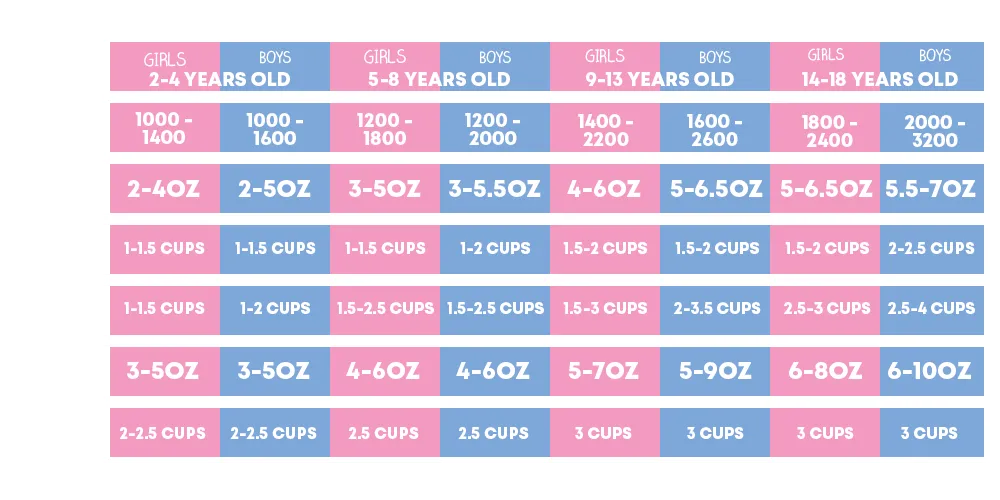Childhood Nutrition
Parents work hard to instill core values and lessons in their children to help them become positive and happy adolescents, teens, and adults. Nutrition should be among these lessons as eating habits developed at a young age can have a lifelong impact. What children eat is heavily influenced by what their parents eat. After all, kids do not go to the grocery store themselves and routinely make their own unapproved purchasing decisions. Rather they eat the same meal as their parents, or a separate meal, chosen by their parents.
Children who eat the same foods as their parents often have the best diets – assuming the parents themselves eat a balanced diet. Those that cater to the child’s meal choices, creating a different meal for the child than their own, often are the children with the worse diets.
It’s no surprise children see their parents as role models and copy their behavior. The sooner you can introduce a rainbow of fruits and vegetables, the more likely your child will be comfortable eating these foods throughout their lifetime. Toddlers can be picky eaters from the age of 2 to 4 as a normal part of their development. But those that remain picky eaters from ages 4 to 9 are likely to stay that way.
Parents can work to offer their kids well-rounded meals that include crucial nutrients for a child’s development. Besides establishing future eating habits, childhood nutrition also is part of the foundation of your child’s development and growth in these critical years. Researchers hypothesize that a poor diet in your childhood can have effects on your gut up to 6 years after puberty based on the results from a study on mice.
40%
of calories consumed by children ages 2-18 are added sugars and solid fats (CDC)
1 in 5
school aged children are considered obese (CDC)
10 times more likely
to become an obese adult if a child is obese between the ages of 6 and 8 (Healthier America)
10.2%
of American households were food insecure in 2021 (USDA)
What Nutrition Guidelines Should Parents Follow?
The Mayo Clinic has a great list of nutritional recommendations for children starting at age 2. The guidelines are also somewhat different for boys and girls. Think of it like the MyPlate diagram the USDA publishes, but much more specific. Categories the Mayo Clinic highlights include calories, protein, fruits, vegetables, grains, and dairy.
The key point is to limit your child’s consumption of added sugars, saturated fats, and salt. It’s important to note that naturally occurring sugar like that found in fruit is okay but added sugars like in soda, juice, or junk food should be limited. Saturated fats and salt are common in heavily processed foods, but can also make their way into your meals through less obvious means like bread.
Stanford Medicine highlights that children will often eat 4 to 5 times per day (because they eat snacks). Offering healthy snacks like fruit, vegetables, yogurt, cereal is important because up to 25% of your child’s daily calories may come from snacks.
Does Fruit Juice have Nutritional Benefits?
Fruit juice remains a favorite for many children, despite its declining popularity. This is due in large part to the growing awareness parents have of the high sugar quantities found even in 100% fruit juice.
Though often packaged in 4oz juice boxes, the amount of sugar per ounce can rival leading sodas.
But 100% fruit juice does contain vitamins and other nutrients. It still is not a direct replacement for real fruit as it does not have the skin or pulp that gives real fruit its fiber.
Common Nutrients Children are Missing
Vitamin D
Essential for building strong bones, vitamin D is found in fish and eggs. Most commonly kids get vitamin D from sunlight and fortified foods like milk, yogurt, or cereal.
Vitamin E
Boosts immune system function to help kids stay healthy. Kids can get vitamin E from broccoli, peaches, and whole-grain cereals.
Calcium
Like vitamin D, calcium supports the growth of strong bones. Foods with calcium often also contain vitamins D, A, and protein. Commonly this is dairy products and leafy greens.
Fiber
Fiber helps children digest the nutrients they consume. Good sources included peas, beans, avocado, raspberries, and cereal that is high in fiber.
How Can I Encourage My Children to Be Physically Active?
It is recommended children be physically active for 60 minutes per day. This activity can come from informal play in your yard, playground, recess, or even organized sports. Often times the activities a child will engage in are influenced by their parents’ own physical activity choices.
Young children often enjoy playing and being active. As a parent, make yourself a part of their activities and encourage them to try new activities. Your role is crucial as you will likely need to give children the equipment or transportation to participate in some of the games they want to try. Walking or biking together as a family can be a great way to get everyone moving.
Physical activity at a young age can help your children build strong bones to last a lifetime. As children age toward adolescence, they often become less active. This is where your involvement and motivation can be most important.
It’s important to note that parents should emphasize the fun in these activities and not put the emphasis on weight loss. If you believe your child needs to lose weight, talk to your primary care provider before starting a child on any form of structured weight loss plan.
Why do Children Need So Much Sleep?
Children who are 6 to 12 years old need 9-12 hours of sleep each night. Younger children need even more sleep!
Sleep is critical to both the physical and mental development of children. If your child is getting enough sleep, it can improve their ability to learn, memory, and attention span.
Adults can get by with less sleep because their body have finished growing. However, sleep still plays a very important role in numerous aspects of adult health.

Phone: (320) 251-2600
Fax: (320) 251-4763
Email: info@integracareclinics.com
Clinic Hours: M/W 8am-6pm & Tu/Th/F 7am-5pm
Copyright 2024, Integracare LTD, All Rights Reserved. Information on this website should not be regarded as medical advice.

